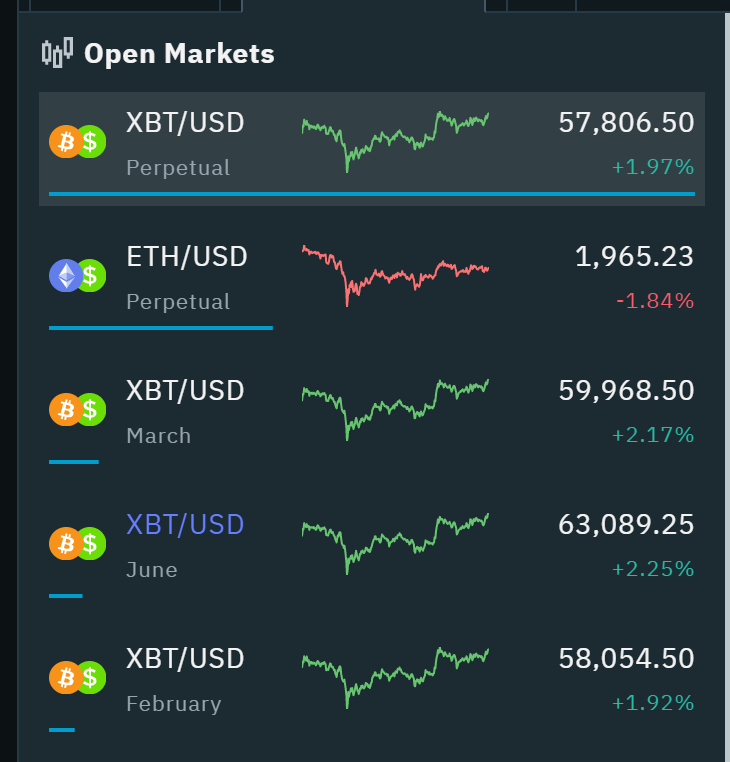OP has not accepted an answer. Why don't I elaborate Aganju's? For convenience, let's round all numbers.
A futures contract is an agreement to buy or sell an underlying asset (Bitcoin, in this case) at a future date at a predetermined price.
Pretend I sell you a futures contract for Bitcoin at $50,000 for June 1. This means that on June 1 you pay me $50,000, and I deliver to you 1 BTC. Since the current price (or "spot price") is now $40,000, there's a difference between the futures price and the spot price. This phenomenon (futures > spot) is called "contango".
Now one could take advantage of contango by buying 1 BTC (at spot price, $40K), and selling a futures contract for 1 BTC at $50K. On June 1, you pocket the difference for a profit of $10K — (minus) exchange and broker fees.
If many traders (or a few mighty ones) do this, this would drive up the spot price and drive down the futures price, bringing the two closer together. This process is called arbitrage — where traders profit from a price imbalance, and make trades that end up reducing this imbalance.
So why wouldn't arbitrage cause this price difference to become teeny? If there's $10K up for grabs, why wouldn't people jump on it?
Aganju outlined several possible reasons:
A. By making this trade, you're locking your money away until the futures contract expires. In that time, you can't use it as margin for leveraged trading. In fact, you can't use it for anything else at all.
B. B follows up on point A. If you believe that BTC will increase > $10K in price, it's better to simply buy BTC and hold that.
C. It may be wearisome to trade and hold BTC. There may simply not be enough people to take advantage of these arbitrage opportunities. If this is the true reason for the contango, then someone more skillful can exploit this opportunity.
D. D generalizes B, namely that you can invest money in more profitable securities during this period.
So the answer boils down to 2 main reasons:
Either too few people are aware of the difference, and are able to act on it. This case represents a real arbitrage opportunity.
Or for traders as a whole, the gains from arbitrage are not worth locking in that amount of money for that time period. Typically because other trades or investments yield a higher expected return.

